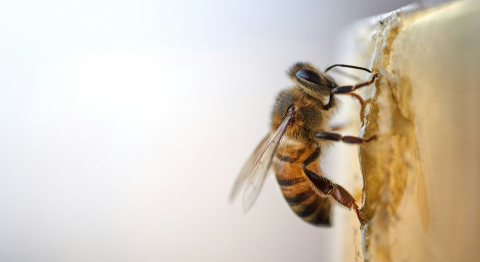Marc Andreessen_ "Jongeren vandaag bezitten liever smartphone dan auto"
In een interview met CNN Fortune zegt Marc Andreessen twee intrigerende dingen over mobiliteit_ Het eerste is een denkoefening met als centrale probleemstelling_ wat als je een perfecte match kan maken tussen vraag en aanbod op het vlak van transport? Het tweede is een stelling over de jeugd van tegenwoordig_ die willen, om vrij te zijn, in de eerste plaats liever een smartphone bezitten dan een auto. En wat die auto betreft_ als ze maar toegang hebben tot de functie ervan, hoeven ze die niet per sé te bezitten. Waarmee de contouren van een nieuw begrip van vrijheid zich aftekenen. Marc Andreessen is niet de minste. Hij is als mede-oprichter van Mosaic en Netscape internet-pionier. Vandaag geldt hij als één van de meest invloedrijke venture capitalists in Sillicon Valley.
1ste citaat_ de denkoefening
Over hoe wat er gebeurt als er in transport een perfecte match ontstaat tussen vraag en aanbod. Te weten, vandaag al bestaan hier interessante experimenten rond van Zipcar, Uber en vele anderen.
”(…) what if access to cars was just automatic? What if, whenever you needed a car, there it was? And what if other people who needed that same ride at that same time could just participate in that same ride? What if you could perfectly match supply and demand for transportation?
Taken a step further, what if you could bring delivery into it? Two people were going to drive between towns, and there was also a package that needed to go. Let’s also put that in there so we can fill a seat with a package. Just run the thought experiment and say, “What if we could fully allocate all the cars, and then what if we could have the cars on the road all the time?”
And of course the answer is a whole bunch of things fall out of it. You’d need far fewer cars. The number of cars on the road would plummet by 75% to 90%. You’d instantly solve problems like congestion. You’d instantly solve a huge part of the emissions problem. And you’d cause a huge reduction in the need for gas. And then you’d have this interesting other side effect where you wouldn’t need parking lots, at least not anywhere near the extent that you do now. And so you could turn a lot of parking lots into parks.”
2de citaat_ jongeren en auto’s
Over hoe jongeren liever flexibel toegang hebben tot de functie van een auto, dan de auto echt te bezitten (en af te betalen).
“Take teenagers 20 years ago and ask them would they rather have a car or a computer? And the answer would have been 100% of the time they’d rather have a car, because a car represents freedom, right? Today, ask kids if they’d rather have a smartphone or a car if they had to pick and 100% would say smartphones. Because smartphones represent freedom. There’s a huge social behavior reorientation that’s already happening. And you can see it through that. And I’m not saying nobody can own cars. If people want to own cars, they can own cars. But there is a new generation coming where freedom is defined by “I can do anything I want, whenever I want. If I want a ride, I get a ride, but I don’t have to worry. I don’t have to make car payments. I don’t have to worry about insurance. I have complete flexibility.” That is freedom too.”
Maak MO* mee mogelijk.
Word proMO* net als 2798 andere lezers en maak MO* mee mogelijk. Zo blijven al onze verhalen gratis online beschikbaar voor iédereen.
Meer verhalen
-
Nieuws
-
Nieuws
-
#WijZijnHier
-
Reportage
-
Nieuws
-
Analyse









 Oxfam België
Oxfam België Handicap International
Handicap International